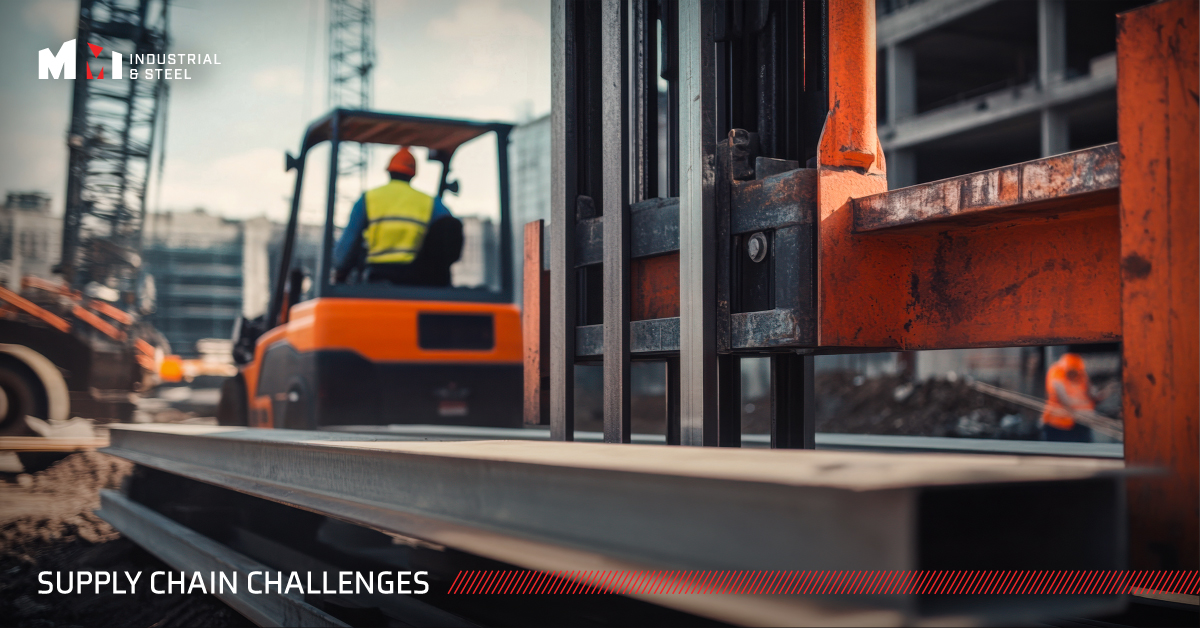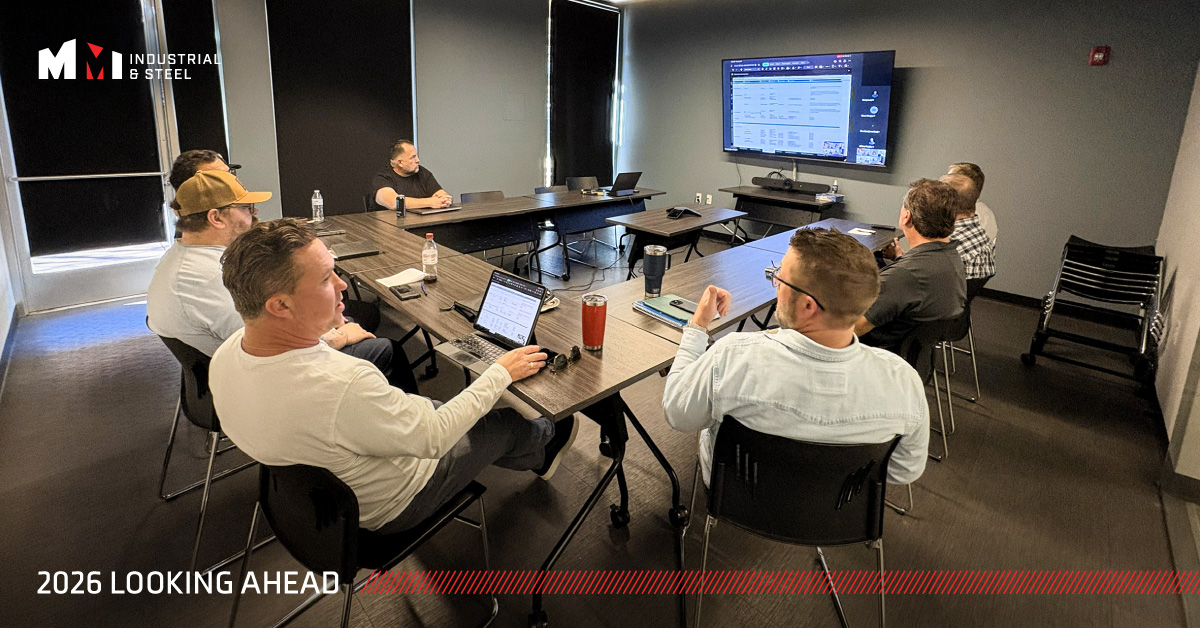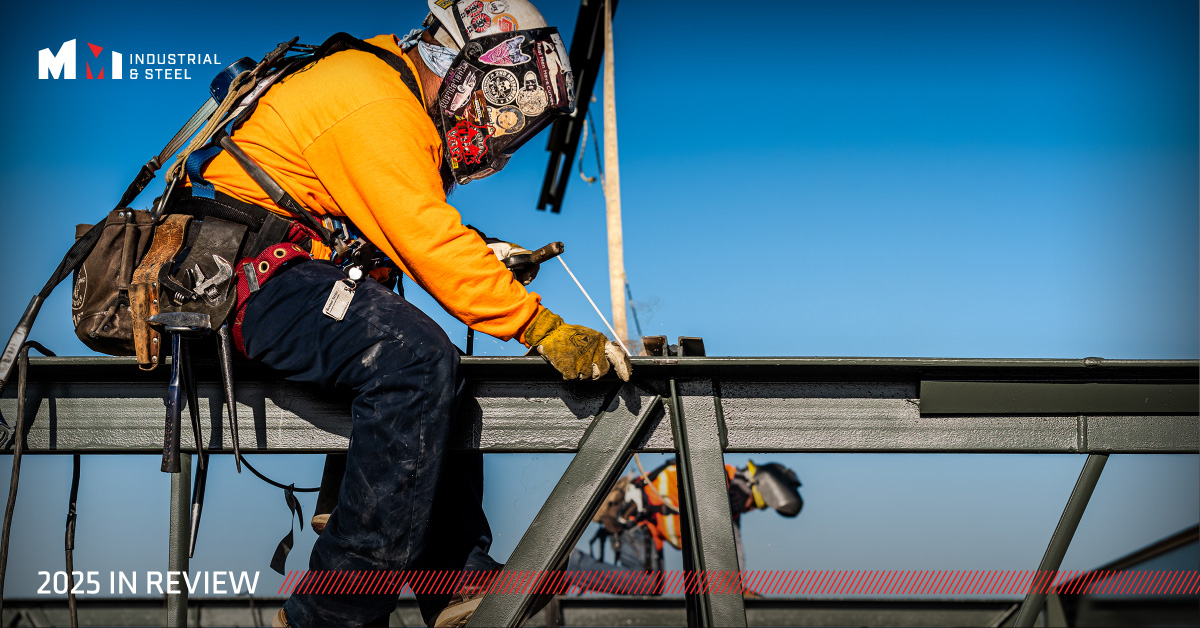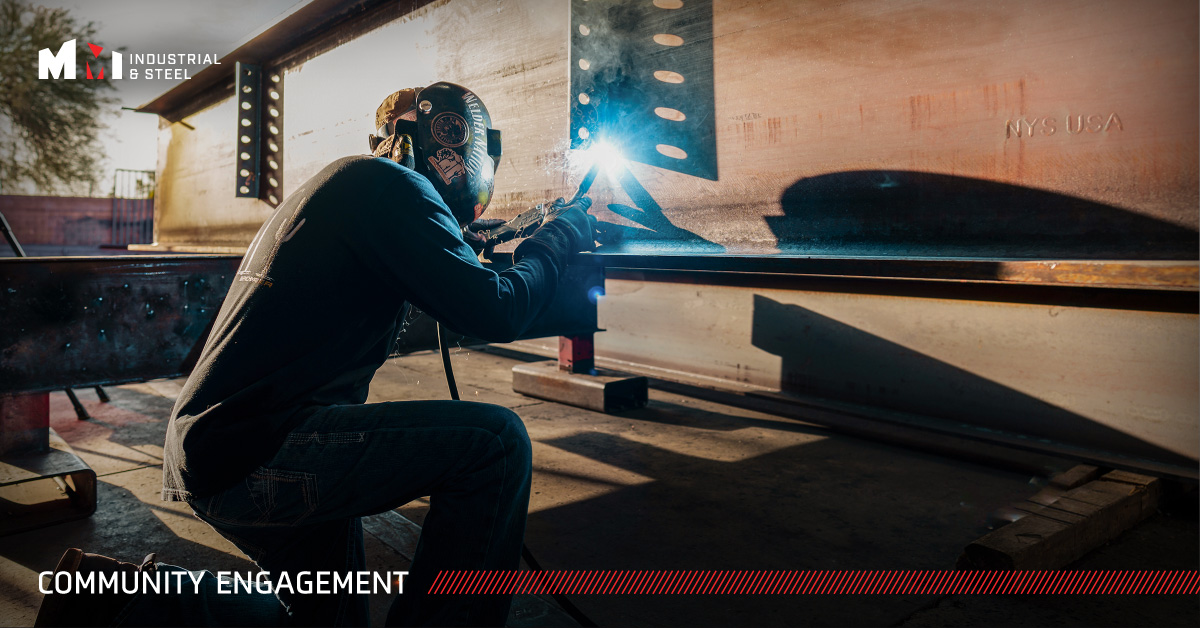
In today’s global landscape, steel supply chains face growing pressure. Things like tariffs, geopolitical tension, transportation delays, and shifting demands can have a big impact on project timelines and costs—both short and long term. This can introduce a lot of frustrations for industrial fabricators and manufacturers.
At MMI Industrial & Steel, we’ve worked hard to develop resilience in the face of supply chain challenges, proactively working towards consistency and stability in our services. Here are some of the ways we’re maintaining excellence even in a volatile supply chain environment.
1. Embrace Strategic Supplier Diversification
When you rely on a single supplier or geographic region, you become exposed to significant risks. Anything from political instability to material shortages can impede a project’s progress.
For this reason, MMI Industrial & Steel has adopted a more diversified approach to finding our suppliers. Because we procure materials from multiple sources—both domestic and international—we can pivot quickly when a particular route becomes constrained.
By keeping multiple supplier channels open at once, we are better able to keep projects moving forward, regardless of what is happening in a particular market or region.
2. Integrate Advanced Inventory Forecasting
In order to have stability in the supply chain, accurate demand forecasting is key. At MMI, we utilize advanced analytics and data-driven forecasting models to help anticipate fluctuating demand and buffer against disruptions.
We also use advanced tools to calibrate procurement schedules and stock levels, allowing us to minimize overstock scenarios and avoid critical shortages.
All together, this creates a smart system that helps us stick to our schedules without tying up capital in excess inventory.
3. Strengthen Supplier Collaboration
Strong supplier relationships aren’t just about sticking to a contract; they’re built on transparency, communication, and shared goals. MMI maintains ongoing dialogue with our supplier partners—sharing forecasts, production updates, and market insights.
Not only does this result in better, more efficient work, it also fosters a collaborative relationship that is based in mutual accountability and trust. We stay aligned with our partners and keep communication open, helping to create a more robust relationship that can better navigate unexpected challenges.
4. Optimize Logistics Through Smart Routing
Transportation bottlenecks—whether created by port congestion, carrier availability, or weather delays—can derail delivery schedules and project timelines. To mitigate this, MMI proactively optimizes logistics.
We do this by exploring and evaluating multiple carrier options, consolidating shipments (when it makes sense to do so), and building some flexibility into every route. This agility helps us reduce lead time variability, avoid last-minute delays, and preserve the project timeline.
5. Leverage Long-Term Contracts and Flexible Agreements
With demand, prices, and tariffs all in flux, there must be a balance between flexibility and long-term stability. MMI achieves this through a hybrid contracting model. This allows us to lock in long-term agreements for core commodities (to ensure price stability), while also retaining shorter-term options for secondary inputs.
Finding this balance has allowed us to capitalize on favorable market shifts without compromising long-term cost efficiency or material availability.
6. Harness Technology for Enhanced Visibility
MMI integrates digital supply chain platforms and ERP systems to give us real-time insights into inventory levels, shipment status, and overall supplier performance. These technologies allow us to rapidly identify bottlenecks, make data-driven decisions, be transparent with our clients, and course correct when needed.
Overall, using these systems helps us make more informed decisions with confidence so we can keep offering exceptional delivery service, even in challenging conditions.
7. Invest in Risk Management & Crisis Planning
Resilient supply chains don’t happen by accident. They’re engineered through planning. At MMI, we conduct regular, comprehensive risk assessments that help us evaluate our exposure to shifts in trade policies, geopolitical climates, material availability, and transportation options.
These vital assessments help us develop a systematic approach to crisis preparation. We maintain an active risk register and regularly test our contingency procedures, so we can jump into action at the first sign of trouble—whether that means rerouting shipments, turning to alternative vendor sources, or reallocating internal resources.
Turning Disruption into Opportunity
The uncertainty of the modern supply chain is an ongoing battle. Still, while the current climate certainly presents challenges, it also underscores the importance of resilience and innovation, and creates an opportunity for those willing to adapt.
At MMI Industrial & Steel, we view every challenge as a chance to innovate and improve. By creating diversified supplier networks, strengthening our forecasting systems, enhancing collaboration, optimizing logistics, and leveraging technology, MMI Industrial & Steel stays ahead of disruptions. These forward-thinking strategies have helped us build a supply chain that is not only resilient, but dynamic. With that in place, we are better set up for success as we work to keep client projects on schedule, manage costs, and deliver excellence every time.
Want a more “future-proof” supply chain? Partner with MMI Industrial & Steel to gain the resilience, agility, and reliability your projects demand. Contact us today to learn how our strategic approach can help you stay on time and on budget—no matter the disruption.



